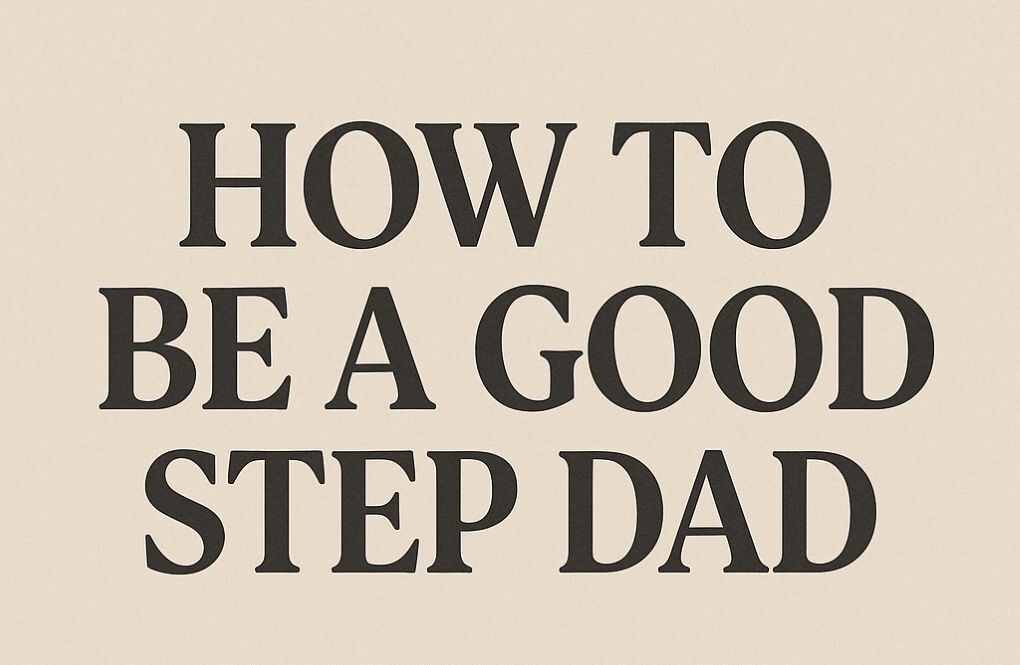Becoming a stepfather means stepping into a space where love, pain, and loyalty already exist. It can feel overwhelming to wonder if you’ll be accepted, respected, or even appreciated. If you’re searching for answers on ‘how to be a good step dad’, I want to tell you three things: don’t try to replace anyone. Instead, be yourself and be present..
Quickly, take a look at these practical ways I’ve shared below!
What to do!
1. Listen First, Speak Later
One of the most effective things a stepdad can do is simply listen. Children, especially those adjusting to new family dynamics, want to feel heard. Instead of jumping in with advice or trying to fix every problem, sometimes the best gift is sitting with them, asking open-ended questions, and showing interest in the little details of their day. This will help the children open up to you, and you’ll also learn what you don’t already know about them.

2. Create Shared Rituals
Shared activities also go a long way to help you establish a connection with your stepkids. Establishing small rituals, such as movie nights, cooking together, or walking the dog, gives children a sense of stability. These moments may seem ordinary, but for a child navigating change, they are often the foundation of trust.
3. Be Patient With Boundaries
Patience is equally important. Many stepfathers make the mistake of stepping into discipline too quickly, hoping to assert authority. But authority without a foundation of trust often backfires. It is usually better to let the mom take the lead, but in such a way that you both exert the discipline together.
4. Support Your Partner
Supporting your partner is another vital aspect of being a good stepdad. Children observe how the adults in their lives interact. When they see unity between you and their parent, they’ll feel a sense of security. Open communication with your spouse about expectations, boundaries, and family dynamics helps you both work as a team.
What Not to Do as a Stepfather
Knowing what not to do is just as important as knowing what to do. Many well-meaning stepfathers stumble because they try to rush the process or place unrealistic expectations on the child.
- Forcing affection is one common mistake. A child should never feel pressured to hug you, call you “Dad,” or express love before they are ready. Affection that grows naturally over time is much more genuine and lasting.
- Another pitfall is comparing yourself to the biological father. Whether he is present, absent, or inconsistent, negative talk about him places children in a painful loyalty conflict. They may feel they have to choose sides, which can cause resentment. Instead, focus on your role without trying to compete.
- Over-disciplining too soon is also a mistake. A child will not respond well to rules and punishment from someone they don’t yet fully trust. It can create a sense of rebellion or emotional distance.
- Stepdads who expect instant love or immediate respect often set themselves up for disappointment. Real bonds take time, and rushing the process usually backfires.
- Ignoring your emotional health can harm the family dynamic. Being a stepdad can come with frustration, rejection, or stress. Taking care of yourself ensures you show up in the right frame of mind for your stepchildren.
If you do these, you’ll be tagged “a bad stepdad”.
What makes a bad stepdad? All stepdads stumble at times. What makes someone a bad stepfather is consistent patterns of behavior.
For example, if you’re someone who is self-centered and prioritizes your own needs above the child’s well-being, then you may not be able to fulfill this role.
Also, constant criticism of the child’s biological father damages the child’s sense of stability. Children need to feel that all the adults in their lives respect one another, even if disagreements exist.
Playing favorites is another harmful trait you shouldn’t touch, even with a long pole. When a stepfather treats his own biological children with more care or attention than his stepchildren, resentment grows quickly. Children in blended families already struggle with feelings of belonging, and favoritism deepens those wounds.
Being withdrawn is something you shouldn’t do as a stepfather. Some stepfathers retreat out of frustration, avoiding interaction to protect themselves from rejection. But children often interpret withdrawal as a rejection of them personally. A stepfather who refuses to engage leaves the child feeling unwanted and unloved.
Perhaps the most harmful trait is intimidation. Using fear or intimidation to gain obedience from your stepkids will erode the respect they have for you. Children may comply outwardly, but inwardly, they may carry resentment and fear that lingers into adulthood.
Final Thoughts
Being a good step dad involves choosing to be consistent, humble, and kind to your stepkids and the entire family. It means showing love even when it’s not returned right away, being patient, not choosing control and intimidation at first. These children may resist you at first. They may test boundaries or cling to the past. But with steady commitment, your presence can become one of the most meaningful anchors in their lives. Again, as a stepdad, don’t try to replace their father. Be a father who sets the mark.
